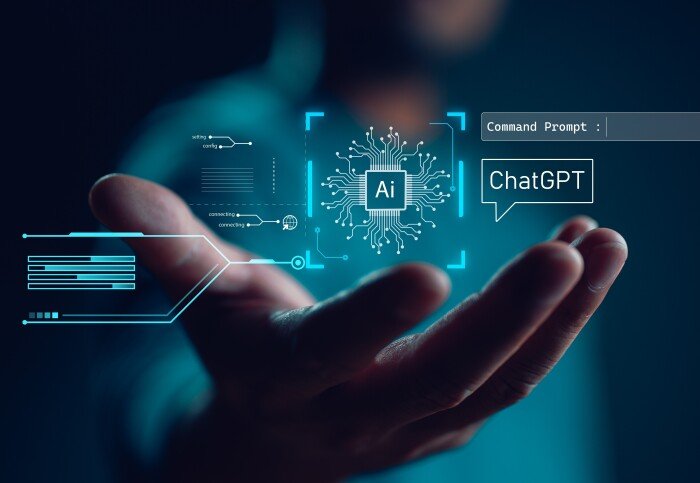What is Artificial Intelligence (AI)? Why is AI Important?
Artificial Intelligence (AI) is no longer a futuristic concept but a present-day reality that’s reshaping our world in profound ways. From revolutionizing industries to changing the way we live and work,
AI is at the forefront of technological innovation. Let’s delve into what AI is, why it’s important,
its advantages and disadvantages, and how it’s used across various sectors today.
Understanding Artificial Intelligence
Artificial Intelligence, in its simplest form, is the simulation of human intelligence in machines that are programmed to think and learn.
AI systems can perform tasks that typically require human intelligence, such as understanding natural language, recognizing patterns, and making decisions.
Imagine AI as the “brain” behind your smart devices, driving their ability to interact intelligently with you.
Why is AI Important?
The significance of AI cannot be overstated. It’s driving efficiencies, unlocking new possibilities, and solving complex problems across various fields. Here’s why AI matters:
- Innovation Driver: AI pushes the boundaries of technology, enabling breakthroughs that were once considered science fiction.
- Efficiency and Automation: By automating routine tasks, AI increases productivity and frees up human resources for more complex tasks.
- Data Analysis: AI excels at processing vast amounts of data quickly, uncovering insights that aid decision-making.
- Problem Solving: AI tackles intricate problems, from diagnosing diseases to optimizing supply chains, with a level of precision that enhances our ability to address global challenges.
The Advantages and Disadvantages of Artificial Intelligence
Advantages of AI
- Enhanced Productivity: AI systems can operate around the clock, performing tasks with speed and accuracy far beyond human capabilities. For example, AI-driven chatbots can handle customer inquiries 24/7 without fatigue.
- Cost Efficiency: Automating repetitive tasks with AI reduces operational costs. Businesses can streamline processes, cut down on labor costs, and reallocate resources to strategic areas.
- Improved Decision-Making: AI analyzes data to provide actionable insights, helping businesses and individuals make informed decisions. Predictive analytics can forecast market trends, allowing companies to stay ahead of the curve.
- Personalized Experiences: AI enhances user experiences by tailoring services and recommendations to individual preferences. Whether it’s personalized shopping recommendations or customized learning paths, AI makes interactions more relevant.
- Enhanced Safety: In fields like healthcare and autonomous driving, AI can improve safety by providing early warnings and preventing errors. For example, AI algorithms can detect anomalies in medical scans that might go unnoticed by the human eye.
Disadvantages of AI
- Job Displacement: The automation of tasks can lead to job loss, particularly in roles that AI systems can perform more efficiently. This displacement raises concerns about the future of work and the need for reskilling.
- High Implementation Costs: Developing and integrating AI systems can be expensive. Small businesses may struggle to afford cutting-edge AI technology, potentially widening the gap between large corporations and smaller enterprises.
- Ethical and Privacy Concerns: AI raises ethical issues related to privacy, data security, and decision-making. The use of AI in surveillance and data collection can lead to privacy breaches and misuse of information.
- Complexity and Maintenance: AI systems are complex and require ongoing maintenance and updates. Managing and troubleshooting AI technology can be challenging, particularly for organizations without specialized expertise.
- Dependence on Technology: Over-reliance on AI can lead to vulnerabilities. If AI systems fail or are compromised, it can disrupt services and cause significant issues.
Strong AI vs. Weak AI
Strong AI and Weak AI represent two different levels of artificial intelligence:
- Strong AI: Also known as Artificial General Intelligence (AGI), Strong AI aims to replicate human cognitive abilities comprehensively. It’s capable of understanding, learning, and applying knowledge across various domains, similar to human intelligence. Strong AI is still largely theoretical and represents the ultimate goal of AI research.
- Weak AI: Also referred to as Narrow AI, Weak AI is designed for specific tasks and excels in those areas. Examples include virtual assistants like Siri and Alexa, which can perform tasks such as setting reminders or answering questions but lack general understanding and adaptability.
Examples of AI Technology and Its Uses Today
AI technology is pervasive, with applications that touch nearly every aspect of our lives. Here are some prominent examples:
- Voice Assistants: Siri, Alexa, and Google Assistant use natural language processing (NLP) to understand and respond to user commands. These AI-powered assistants help with tasks like setting reminders, playing music, and answering questions.
- Recommendation Systems: Platforms like Netflix and Amazon use AI to suggest content based on your previous interactions. AI algorithms analyze your preferences and behavior to provide personalized recommendations.
- Autonomous Vehicles: Self-driving cars use AI to navigate roads, detect obstacles, and make driving decisions. AI systems process data from sensors and cameras to ensure safe and efficient driving.
- Healthcare Diagnostics: AI is revolutionizing healthcare by analyzing medical images to detect diseases such as cancer or diabetes. AI-powered tools assist doctors in diagnosing conditions more accurately and swiftly.
- Fraud Detection: Financial institutions employ AI to monitor transactions and detect fraudulent activities. AI algorithms analyze patterns and anomalies to identify potential threats in real-time.
Applications of AI
AI in Education
AI is transforming education by offering personalized learning experiences.
Intelligent tutoring systems adapt to individual student needs, providing customized feedback and resources.
AI-driven analytics help educators track progress and identify areas where students may need additional support.
Virtual classrooms and educational apps leverage AI to create interactive and engaging learning environments, enhancing the overall educational experience.
AI in Entertainment and Media
In the entertainment industry, AI plays a significant role in content creation and curation.
Streaming services like Netflix use AI to recommend shows and movies based on user preferences and viewing history.
AI tools can also generate music, write scripts, and create realistic animations,
pushing the boundaries of creative expression and production.
AI in Law
AI is reshaping the legal field by automating routine tasks such as document review and legal research.
AI-powered tools assist lawyers in analyzing case law, drafting legal documents, and predicting case outcomes.
This efficiency reduces the time and cost associated with legal proceedings, making legal services more accessible and effective.
AI in Software Development and IT
In software development, AI streamlines coding processes and enhances productivity. AI tools can automate repetitive coding tasks, suggest improvements, and help with debugging.
In IT operations, AI predicts and resolves system issues, optimizing performance and minimizing downtime.
This leads to more efficient software development and better management of IT resources.
Ethical Use of Artificial Intelligence
Ethical considerations are crucial in the development and deployment of AI. Ensuring that AI systems are used responsibly involves addressing concerns related to privacy, fairness, and accountability.
Developing ethical guidelines helps prevent misuse and ensures that AI technologies are aligned with societal values.
This includes safeguarding data, mitigating biases in algorithms, and ensuring transparency in AI-driven decisions.
AI Governance and Regulations
AI governance and regulation are essential to ensure that AI technologies are developed and used responsibly. Various governments and organizations are working on frameworks to regulate AI, focusing on areas such as privacy, safety, and ethical considerations.
Effective governance promotes transparency, accountability, and public trust in AI systems, helping to address potential risks and challenges.
The History of AI
The history of AI dates back to the mid-20th century, with pioneering work from researchers like Alan Turing and John McCarthy.
Turing’s concept of a machine that could mimic human intelligence laid the foundation for AI research.
The term “Artificial Intelligence” was coined by McCarthy in 1956 during the Dartmouth Conference, marking the beginning of formal AI research.
Early AI efforts focused on symbolic reasoning and problem-solving. Over the decades, advancements in machine learning, neural networks, and big data have propelled AI forward, leading to the sophisticated technologies we see today.
AI continues to evolve, driven by ongoing research and technological innovation.
Conclusion
Artificial Intelligence is a powerful and dynamic force shaping the future.
From enhancing everyday convenience to driving advancements across various sectors, AI holds immense potential.
While challenges and ethical considerations must be address, the benefits of AI are transformative and far-reaching.
As technology continues to advance, it’s essential to navigate AI’s growth responsibly,
ensuring that its applications contribute positively to society and improve our lives.










